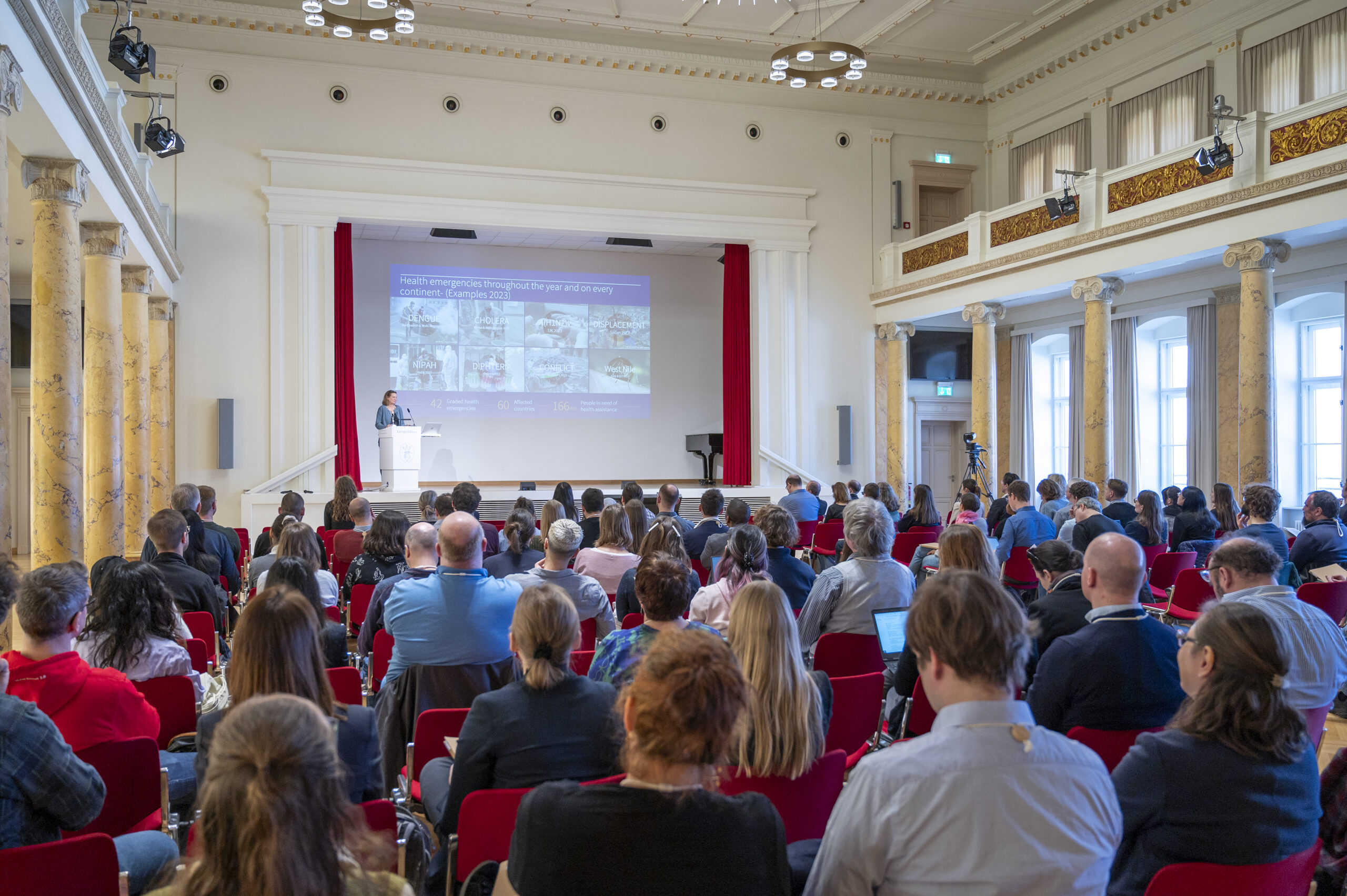The German National Academy of Sciences, Leopoldina, hosted the “2nd National Conference on Infectious Disease Modeling”, which brought together over 150 national and international experts in Halle (Saale) to further strengthen and expand modeling expertise in the fight against infectious diseases in Germany and beyond.
The BMBF-funded Modeling Network for Severe Infectious Diseases (MONID) reflects with gratification on three days of exciting panel discussions, intensive talks and presentations by talented (young) modellers. From Wednesday, 13.03.2024 to Friday, 15.03.2024, over 150 scientists gathered at the Leopoldina in Halle (Saale) or online to share their research results and discuss how modeling can be designed and communicated in the future as outlined in the “2nd National Conference on Infectious Disease Modeling”.
The conference was opened by high-ranking representatives from politics and science: The Dean of the Faculty of Medicine at Martin Luther University Halle-Wittenberg Prof Heike Kielstein, Parliamentary State Secretary Mario Brandenburg and the President of the Robert Koch Institute Prof Lars Schaade addressed the participants. In his video message, State Secretary Mario Brandenburg affirmed that the network has successfully managed to bundle modeling expertise on the topic of severe infectious diseases in Germany and make it publicly visible, so that MONID now serves as a central point of contact for science for politics and society. The representative of the BMBF, which funds the network, and the responsible employees of the Jülich project management organisation were also able to gain an impression of the progress and success of their research funding on site.
The 2nd annual conference once again offered the unique opportunity to exchange ideas with national and international experts from the field of mathematical modeling of infectious diseases and related disciplines on the latest findings in these areas. The internationally renowned keynote speakers, Prof. Dr Niel Hens, biostatistician from the Universities of Hasselt and Antwerp (Belgium), and Dr Julia Fitzner, Head of the “Insights and Analytics” department at the World Health Organization (WHO), also provided exciting input for discussions. In his presentation, Niel Hens gave an impressive overview of COVID-19, from first data to models used and back, and emphasised the global challenge of pandemics, which requires global cooperation. Julia Fitzner took a look at the global incidence of infections in 2023, in which not only SARS-CoV-2 but also dengue fever and West Nile virus are playing an increasing role.
In four oral sessions, a total of 24 researchers, including 14 young scientists, presented their current research work to the audience. The exciting presentations ranged from estimating the optimal age for infant measles vaccination, a review of the guidelines on quality assessment and reporting of mathematical modeling studies for infectious disease dynamics, a post-hoc analysis of Covid-19 mortality in Poland, the modeling of mass gatherings in light of potential future pandemics, a mathematical modeling of pneumococcal transmission and disease dynamics in the German population to the estimation of Covid-19 prevalence from wastewater data and the cost-effectiveness of COVID-19 vaccination strategies in resource-constrained settings, such as Ethiopia. In addition, last year’s popular format of one-minute elevator pitches was revived, in which the modellers were able to present their project in a creative way to attract the attention of the conference participants. In the subsequent poster session, 55 researchers, including 42 MONID young scientists, took the opportunity to present their results to the modeling community in moderated poster tours and to discuss them afterwards.
Another highlight of the conference was the exchange between experts in panel sessions on three different key topics, in which the audience was actively involved in the concluding discussion round: The panel on “Contacts and diversity in models” offered insights into the transmission risk and drivers of epidemic dynamics through digital contact tracing and dealt with synthetic twin populations. The panel on “Adaptive behaviour in modeling” focused on the role of behavioural responses to high case numbers in pandemics. In the last panel, the scientists addressed the topic of “Modeling and model parametrization for respiratory infections” and discussed, among other things, how an inverse problem – i.e. inferring an observed effect from its cause – can be solved with the help of machine learning.
This year’s conference also focussed on young scientists in a “Young MONID Panel” of the newly founded “Young MONID Initiative” as well as planned initiatives to promote young scientists. The “Young MONID Initiative”, which was launched a few months ago, has set itself the goal of inspiring young scientists from all disciplines for the modeling of infectious diseases, as the initiative’s contact persons, Manuela Harries and Dr Beryl Musundi, emphasise. The promotion of young modellers is particularly important to the network, which is why the three best posters and, this year for the first time, the best lecture received prizes.
In summary, the conference once again highlighted how important it is to create joint and sustainable structures to strengthen modeling expertise in Germany and internationally and that highly complex infection epidemiological models can only be developed in an interdisciplinary and collaborative manner in order to come one step closer to solving global health problems such as researching and combating severe infectious diseases.
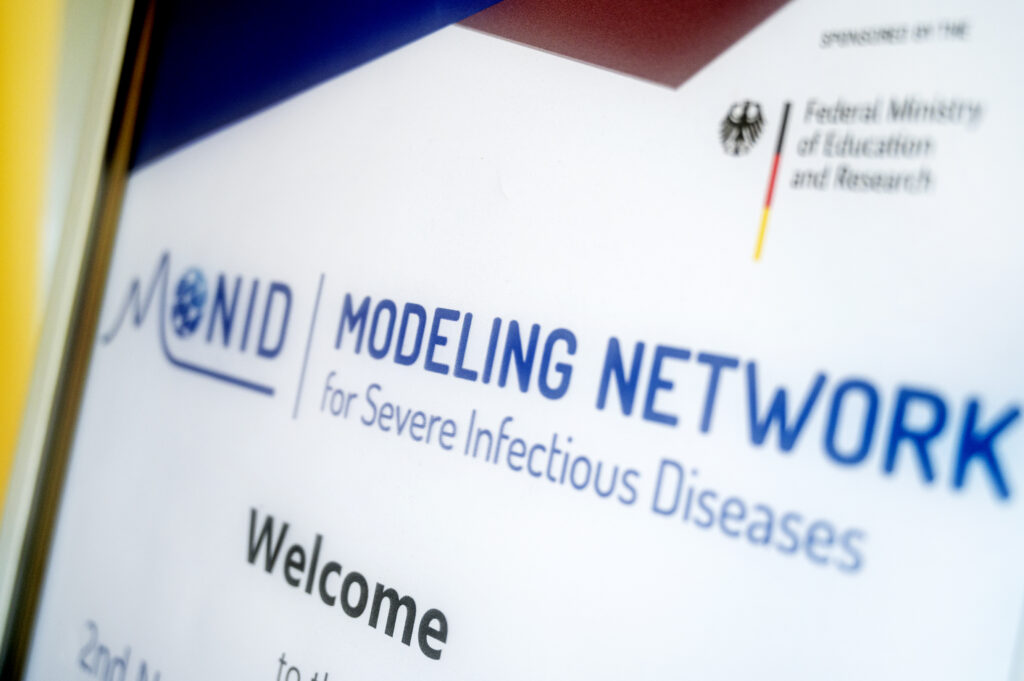
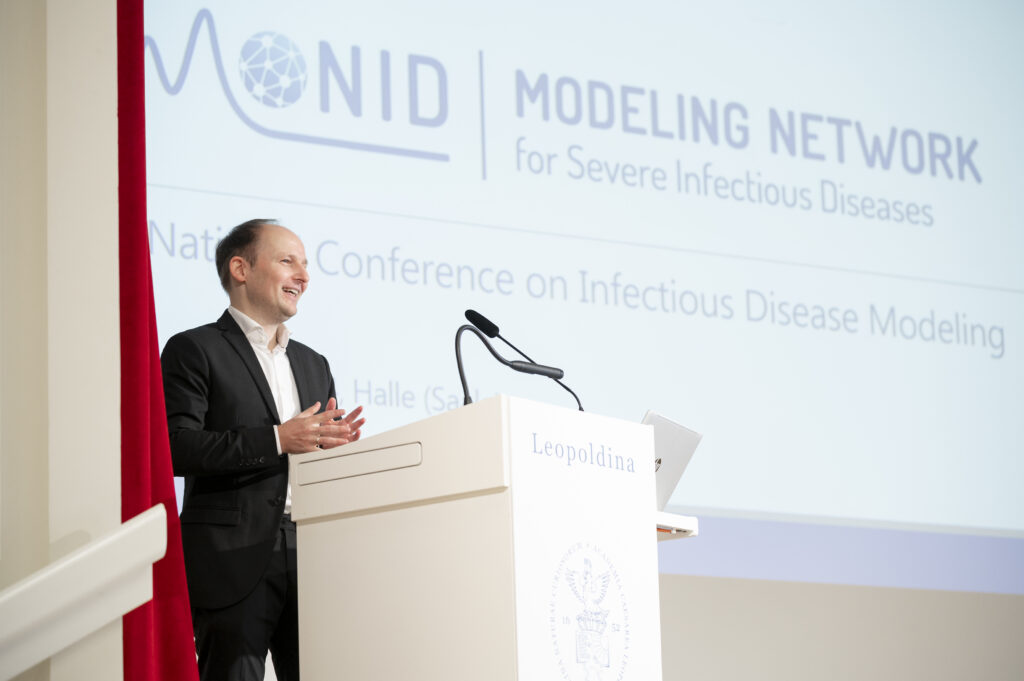
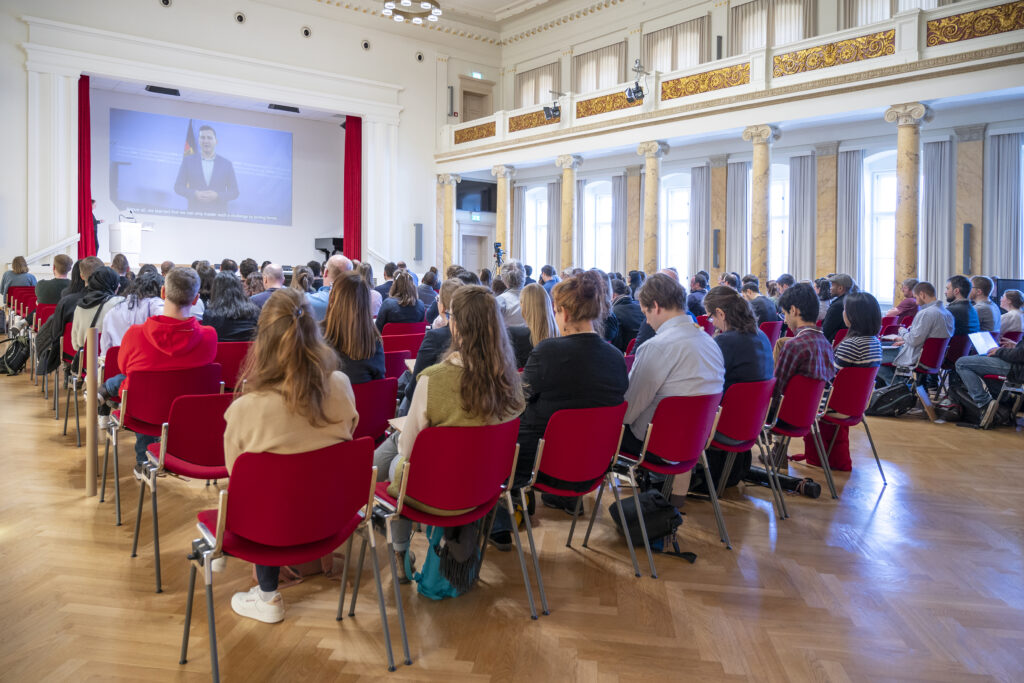
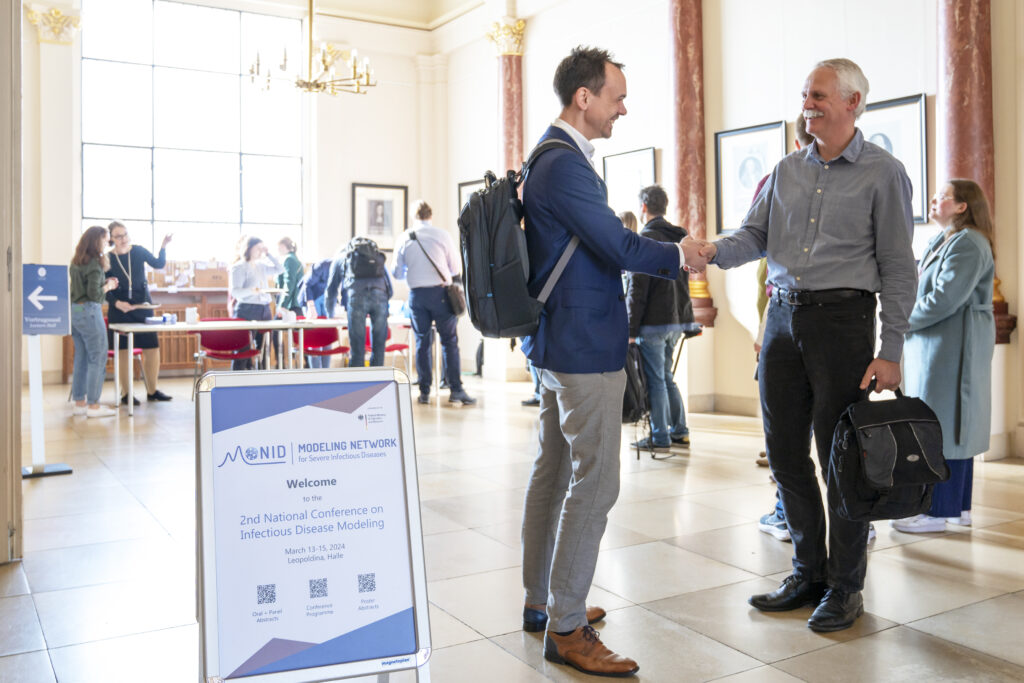
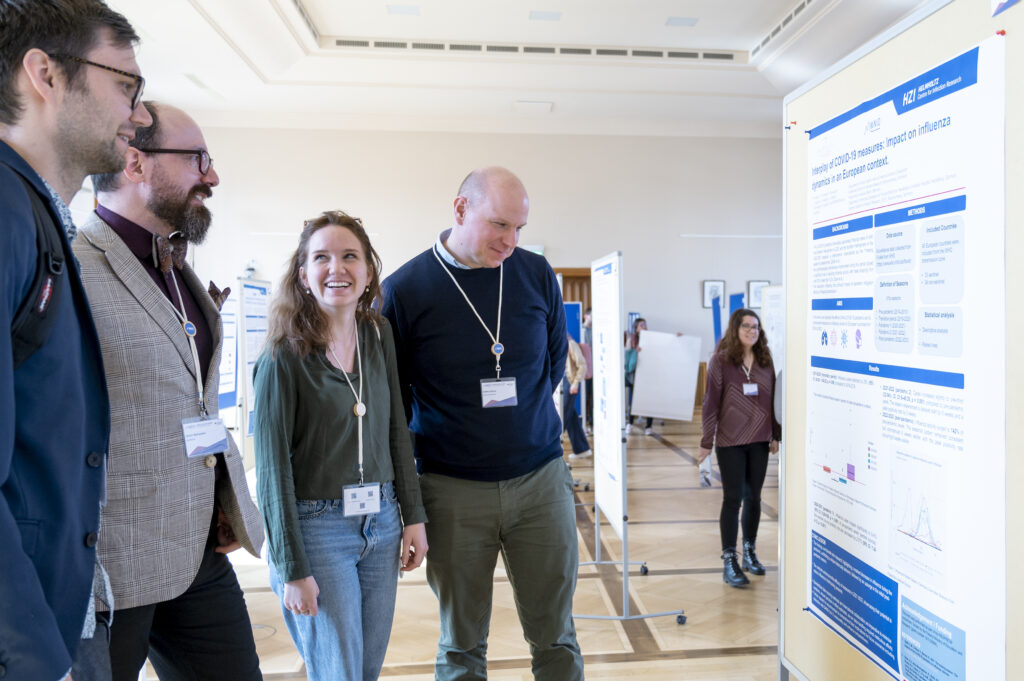
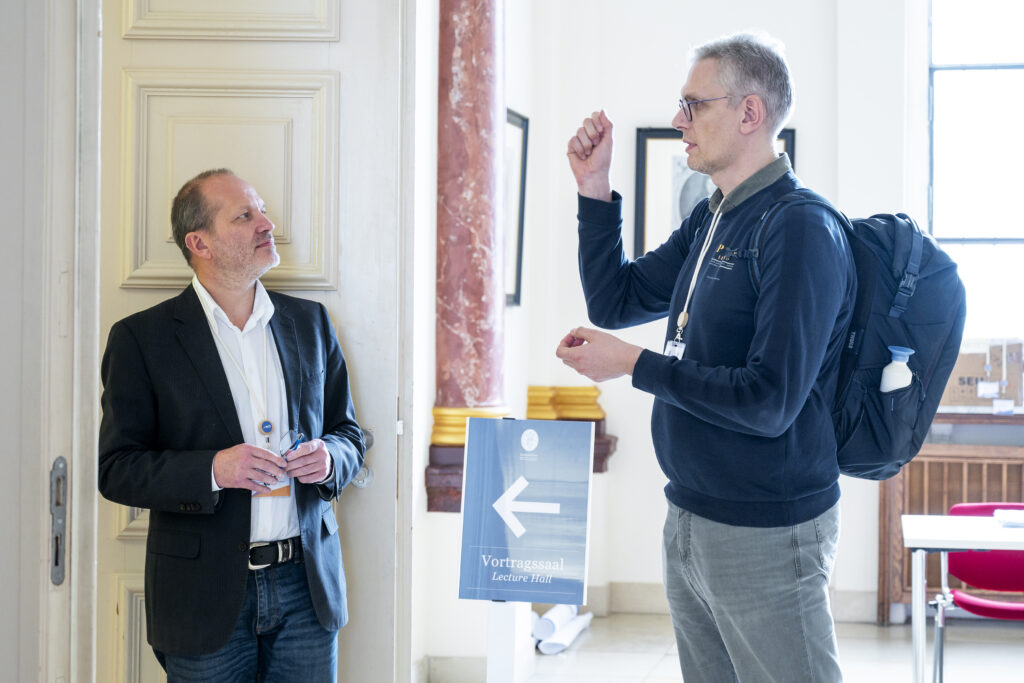
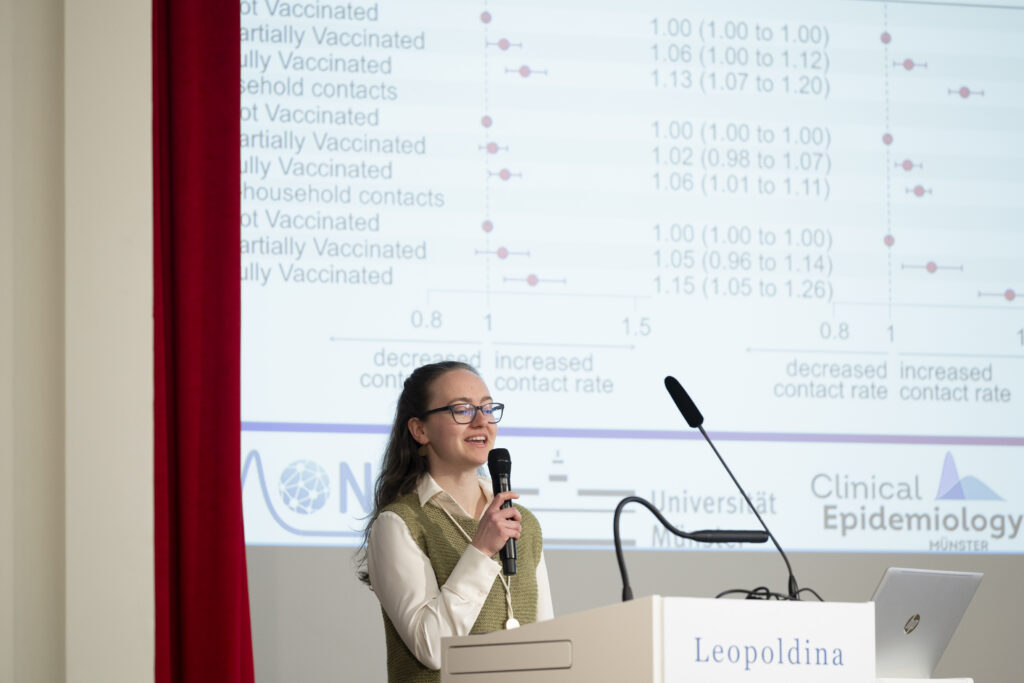
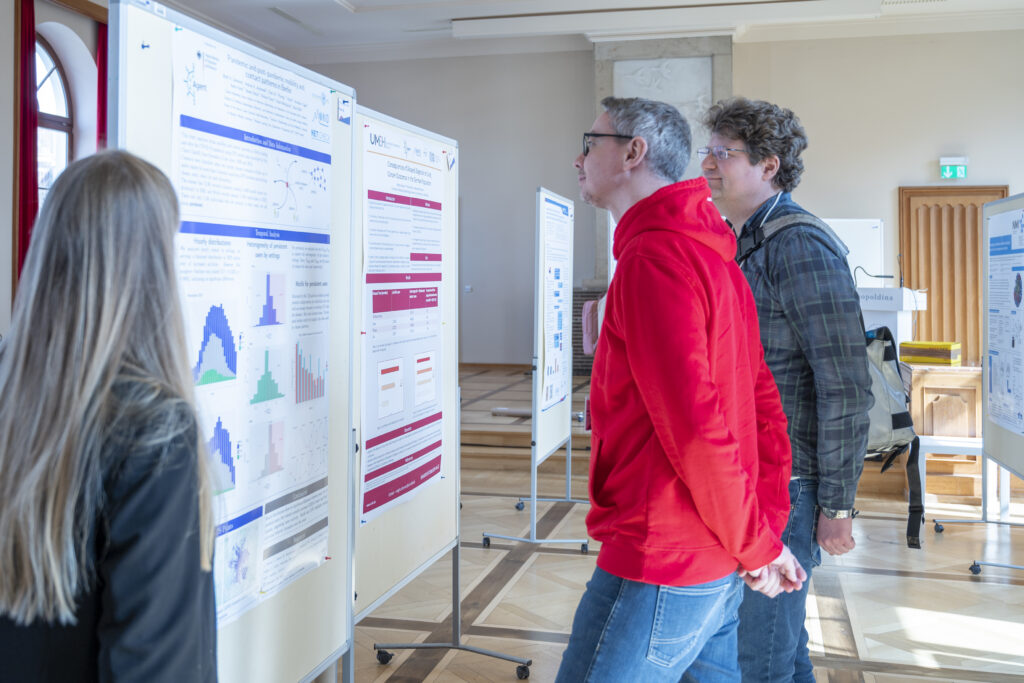
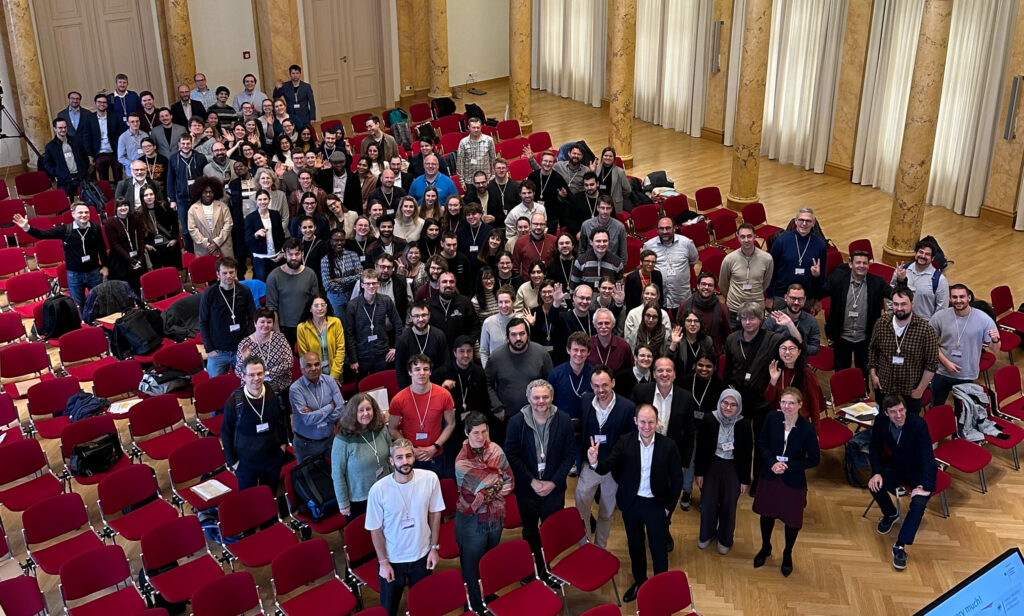
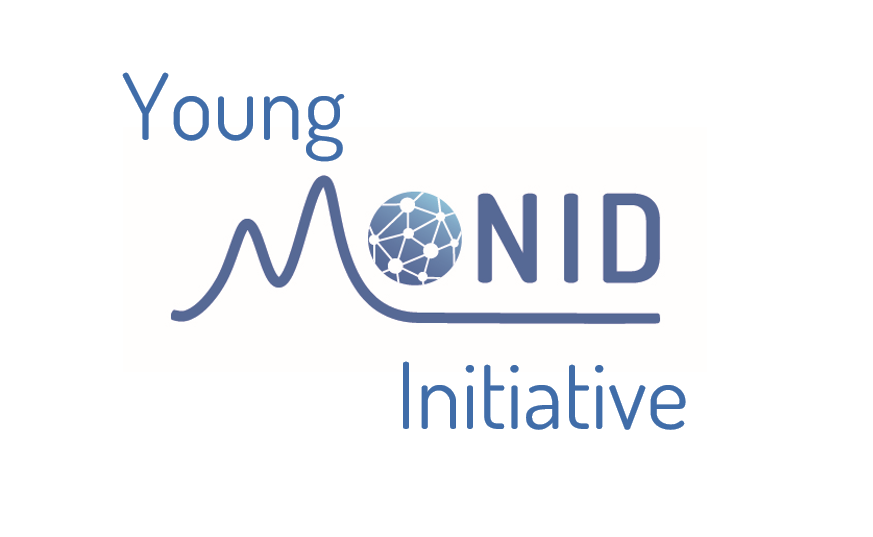
© Universitätsmedizin Halle
© Carla Hartmann/MONID

